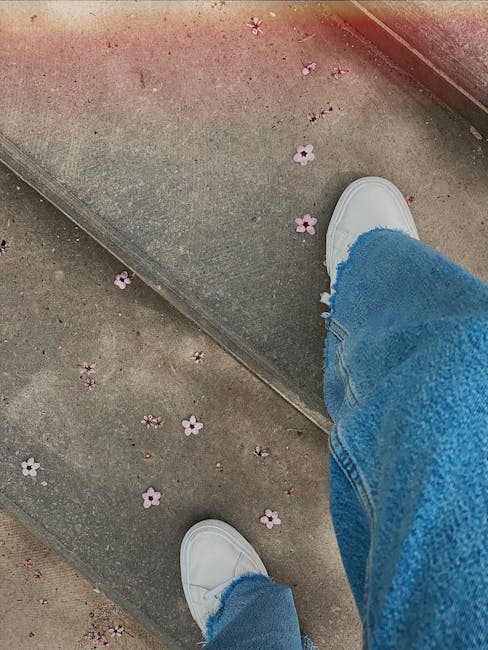Police Rescue Kid From Japanese Mother's Out-of-Control Rage: A Look at Imperfection & Harmony

Police Rescue Kid From Japanese Mother's Out-of-Control Rage: A Look at Imperfection & Harmony
Oh, dears! Such a distressing news story has fluttered across my screen – a child rescued from a situation involving a mother's uncontrolled rage. It's a stark reminder that even within the most meticulously planned lives, darkness can intrude. While the details are, of course, sensitive and best left to the authorities, it compels me to reflect on a few things, viewing it through a lens of Japanese aesthetics and philosophy. You know, finding beauty in imperfection, seeking harmony even amidst chaos, and the vital importance of a calm mind.
The Transient Nature of Calm: Embracing Mono No Aware

The Japanese concept of Mono no aware (物の哀れ) whispers to us of the transience of all things. It's a bittersweet awareness of impermanence, a gentle understanding that joy and sorrow, peace and turmoil, all ebb and flow. A calm home, a peaceful mind - they are not permanent fixtures. Life, as they say, is like a cherry blossom, beautiful but fleeting. Understanding this allows us to cherish the moments of serenity and to approach moments of difficulty with a touch more compassion, both for ourselves and others.
It's so important to remember that everyone, everyone, struggles. Even the most seemingly composed mother, the most organized household, can experience moments of intense stress and overwhelm. There could be untold pressures – financial worries, relationship difficulties, health concerns – hidden beneath the surface. Mono no aware invites us to consider the unseen struggles that may contribute to such an unfortunate incident.
The Power of Kaizen: Small Steps Towards a More Balanced Life

Instead of dwelling on the negativity, let's consider how we can, in our own small way, cultivate more harmony. The principle of Kaizen (改善), meaning "continuous improvement," reminds us that even tiny steps can lead to significant positive change over time. Think of it as tending a miniature bonsai – daily care and attention, even if it seems minimal, shapes its growth and beauty.
What "bonsai" can we cultivate in our lives to foster greater calm and prevent overwhelm? Here are a few ideas, borrowing from Japanese design and philosophy:
- Mindful Mornings: Instead of reaching for your phone the moment you wake up, try a few minutes of quiet meditation or simply enjoying a cup of green tea while observing your surroundings. Even five minutes can make a world of difference.
- De-clutter Your Space: Inspired by the minimalist aesthetic, decluttering can create a sense of calm and control. Start with one drawer, one shelf, or even just your workspace. Get rid of items you no longer need or use, and organize what remains. It's amazing how decluttering your physical space can declutter your mind!
- Incorporate Nature: Bring elements of nature into your home. A small bonsai tree, a vase of flowers, or even just a few smooth stones can create a sense of tranquility. Studies have shown that being surrounded by nature reduces stress and improves mood.
- Practice Gratitude: Take a few moments each day to reflect on what you are grateful for. It can be something as simple as a beautiful sunset, a delicious meal, or a kind word from a friend. Gratitude helps shift your focus from what's lacking to what's abundant.
- Embrace Imperfection (Wabi-Sabi): The beauty of Wabi-Sabi (侘寂) celebrates the imperfect, the impermanent, and the incomplete. Stop striving for unattainable perfection. Allow yourself (and your home!) to be a little messy, a little flawed. It's in these imperfections that true beauty lies.
- Learn a Calming Craft: Engaging in a creative activity like origami, calligraphy, or even just coloring can be incredibly therapeutic. These activities require focus and attention, allowing you to temporarily escape from the stresses of daily life.
The Importance of a Calm Environment: Creating a Sanctuary

Japanese design places great emphasis on creating spaces that promote tranquility and well-being. Think of the serene simplicity of a traditional Japanese garden, the clean lines and natural materials of a minimalist home, or the soothing atmosphere of a tea ceremony. While we may not all have the space or budget to completely transform our homes, we can incorporate elements of Japanese design to create a more calming environment.
Consider these simple changes:
- Color Palette: Opt for a calming color palette of neutral tones like white, beige, gray, and soft blues and greens. These colors create a sense of peace and serenity.
- Natural Light: Maximize natural light by keeping windows clean and uncluttered. Use sheer curtains to filter sunlight and create a soft, diffused glow.
- Minimalist Furnishings: Choose simple, functional furniture with clean lines. Avoid cluttering your space with unnecessary items.
- Tatami Mats: If possible, consider incorporating tatami mats into your flooring. These mats provide a soft, comfortable surface and create a sense of warmth and intimacy.
- Shoji Screens: Use shoji screens to divide spaces and create a sense of privacy. These screens are lightweight, translucent, and allow light to filter through.
- Greenery: Add plants to your home to bring a touch of nature indoors. Choose plants that are known for their air-purifying qualities, such as bamboo, ferns, and spider plants.
Seeking Help: A Sign of Strength, Not Weakness

Perhaps the most important lesson in all of this is recognizing when we need help. In Japanese culture, there can sometimes be a stigma associated with seeking assistance, a pressure to maintain a facade of perfection. But true strength lies in acknowledging our limitations and reaching out for support when we need it. There's absolutely no shame in admitting that you're struggling, whether it's with parenting, finances, relationships, or mental health. In fact, seeking help is a sign of immense courage and self-awareness.
Remember, there are resources available for parents who are struggling to cope. Support groups, therapy, and parenting classes can provide valuable tools and strategies for managing stress and building healthy relationships. Don't hesitate to reach out to friends, family, or professionals for help. It takes a village, as they say, and no one should have to navigate the challenges of parenthood alone.
Beyond the News: Focusing on Prevention and Understanding

While we may never know the full details of the situation that led to the news story, we can use it as an opportunity to reflect on the importance of mental health, self-care, and seeking help when needed. Let's focus on creating a society where parents feel supported, not judged, and where mental health is prioritized. A society where the principles of Kaizen, Mono no aware, and Wabi-Sabi can guide us towards a more balanced, harmonious, and compassionate way of life.
Perhaps, instead of simply reacting to the negative, we can channel our energy into creating positive change in our own lives and communities. By cultivating calm, embracing imperfection, and seeking help when needed, we can create a more peaceful and supportive world for ourselves and our children. After all, isn't that a goal worth striving for?
And remember, darlings, even on the stormiest days, there is always beauty to be found. Look for the cherry blossoms after the rain, the subtle glow of candlelight in the evening, and the simple joy of a shared cup of tea. These small moments of beauty can help us navigate the challenges of life with grace and resilience.
It's my sincerest hope that this reflection, inspired by Japanese aesthetics, offers a gentle perspective and encourages us all to prioritize calm, understanding, and support in our lives and communities. Sayonara for now, and may your days be filled with a touch of zen!
Post a Comment